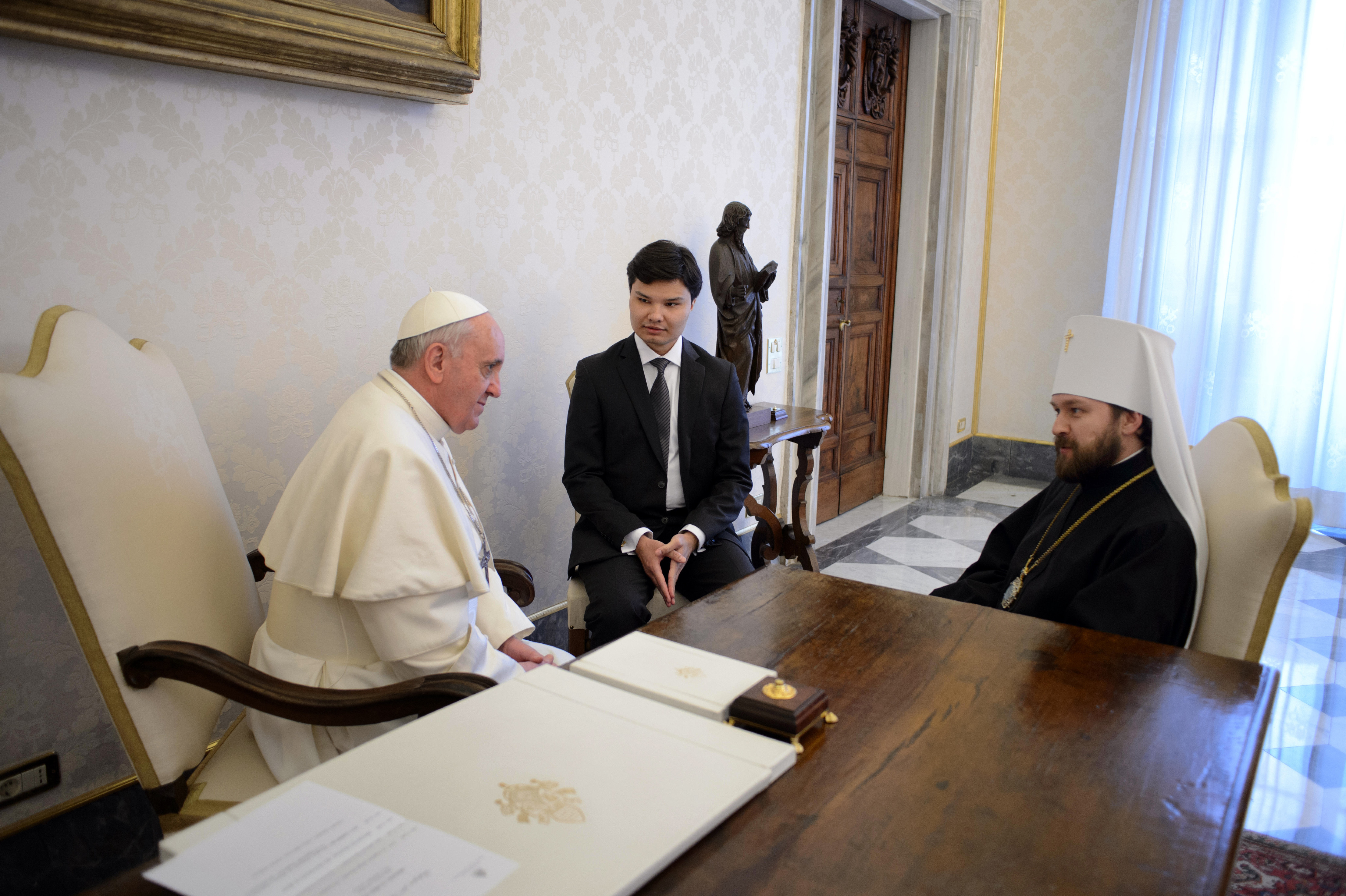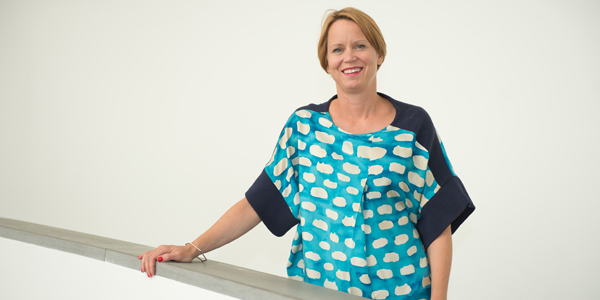Museum head in cross ban
Eva Kraus (pictured), the director of the New Museum in Nuremberg, has refused to put up a cross at the entrance to the museum as required under Bavarian law from 1 June. She had informed the arts ministry of her decision, but had not yet received a reply, she told the Süddeutsche Zeitung on 24 May. The state premier of Bavaria, Markus Söder, wants to meet critics of his decision that crosses must be hung in all public buildings in Bavaria “that are clearly visible” in their entranceways.
A huge new cathedral in northern China’s Hebei province was consecrated on 15 May, presided over by an illicit bishop not recognised by the Holy See but recognised by the Communist government in Beijing. Bishop Joseph Guo Jincai said that the new complex in Chengde – which includes a convent – reflects the care and support of the Chinese Communist Party for “patriotic” religious communities. Government officials present expressed the hope that the Chengde Diocese under Guo’s leadership would continue to uphold the flag of “loving the country and the Church”.
More than 800 people attended the consecration, including officials of the State Religious Affairs Bureau now overseen by the United Front Work Department (UFWD) – an organ of the Communist Party’s Central Committee that has significant new powers to impose state control of religions. If a long-negotiated Sino-Vatican agreement is reached, seven illicit Chinese bishops, including Guo, could be recognised by the Holy See.
Catholics killed in clashes
Four Catholics are among 12 people killed in clashes with police in the south Indian state of Tamil Nadu amid protests against a copper smelter that residents say pollutes their drinking water. In addition, at least 20 people, including a Catholic priest, are in hospital with bullet injuries after Tamil Nadu state police fired at 20,000 people gathered at the plant, owned by London-based Vedanta, in the coastal district of Tuticorin on 22 May. Fr Leo Jayaseelan was shot in the stomach. Fr Norbert Thomas, chancellor of Tuticorin Diocese, said the polluting plant affects 19 parishes in the city.
The Director of Caritas Nigeria, Fr Evaristus Bassey, said in a WhatsApp message on Monday that Fulani herdsmen had attacked the minor seminary in Jalingo, capital of the northern Taraba state. “Our seminary has just been attacked by the Fulani; some students are injured, two priests beaten and one shot in the leg,” said Fr Bassey. The Muslim Fulani are waging a murderous campaign against Christian farmers.
Two priests and 17 other people were slaughtered by Fulani on 24 April at St Ignatius Catholic Church in Gwer East, in Benue state.
(Lagos protests, see page 11.)
Colombia’s presidential election will be going to a second round, after no candidate took the 50 per cent of votes needed to win in the first round on Sunday. The leader was the right-wing politician Ivan Duque (above), who obtained 39.1 per cent of the vote, followed by the leftist Gustavo Petro, with 25.1 per cent. The two men will contest the second round on 17 June. The first presidential election since the 2016 Peace Accords was closely watched, as candidates are divided on whether to implement the peace accords as they stand. Mr Duque argues they conceded too much to the FARC guerrilla group, which is now a political party. The peace agreement assured it of 10 seats in congress for the next eight years.
On Saturday, the Colombian bishops recommended voting for candidates “who wish to build the foundation of ethics and values in the country, and promote clear policies that favour human dignity, the protection of the family, the defence of life in all its stages, the rights of the parents in their children’s education, and the protection of nature.”
Catholic leaders have visited Ebola-affected communities in DR Congo, looking into Church health care, underlining prevention measures, and reporting that the urban nature of the latest outbreak of the deadly virus is of great concern. Archbishop Fridolin Ambongo Besungu, Coadjutor of Kinshasa, visited the sick in Mbandaka, who included a priest. “The presence of Ebola in Mbandaka, a trading hub of 1.2 million, upstream from Kinshasa, a city of 10 million inhabitants, worries us deeply,” said Archbishop Marcel Utembi Tapa of Kisangani, president of the DRC bishops’ conference. During May, more than 50 people have been infected with Ebola, and 22 deaths confirmed.
A Polish archbishop has warned that the Church risks losing support among young people unless it drastically revises its pastoral approach. “We’ve turned God into a collection of notions, abstractions and definitions,” said Archbishop Grzegorz Rys of Lodz. “We need to get away from working in mass groups and percentages to working in an individual, personal dimension.” The archbishop spoke as Church data showed a continuing fall in youthful religious participation in the country, where priestly and religious order vocations have also fallen sharply.
Top job for Becciu
Pope Francis has appointed Cardinal-designate Archbishop Angelo Becciu (above), one of his most trusted aides, to run the Vatican’s saint-making department. Soon-to-be Cardinal Becciu is the Secretariat of State’s “sostituto” (“substitute”), a chief of staff equivalent, with a crucial role working closely with the Pope. On Saturday, the Vatican announced that Francis had decided Archbishop Becciu will succeed Cardinal Angelo Amato, who turns 80 on 8 June, as Prefect of the Congregation for the Causes of Saints.
(See View from Rome, page 26.)
The head of Serbia’s Orthodox Church has backed the Russian Orthodox Church in its efforts to thwart calls by Ukraine’s government and parliament for the Orthodox Church in Ukraine to be independent of Moscow. “Our Serbian Church entirely supports Russian Orthodox unity and integrity, and decisively condemns the actions of Uniates and schismatics to tear apart the robe of Christ,” said Patriarch Irinej Gavrilovic, 87. Moves have continued to persuade the honorary head of world Orthodoxy, Ecumenical Patriarch Bartholomew I, to grant autocephalous, or self-governing, status to the Orthodox Church in Ukraine.



 Loading ...
Loading ...